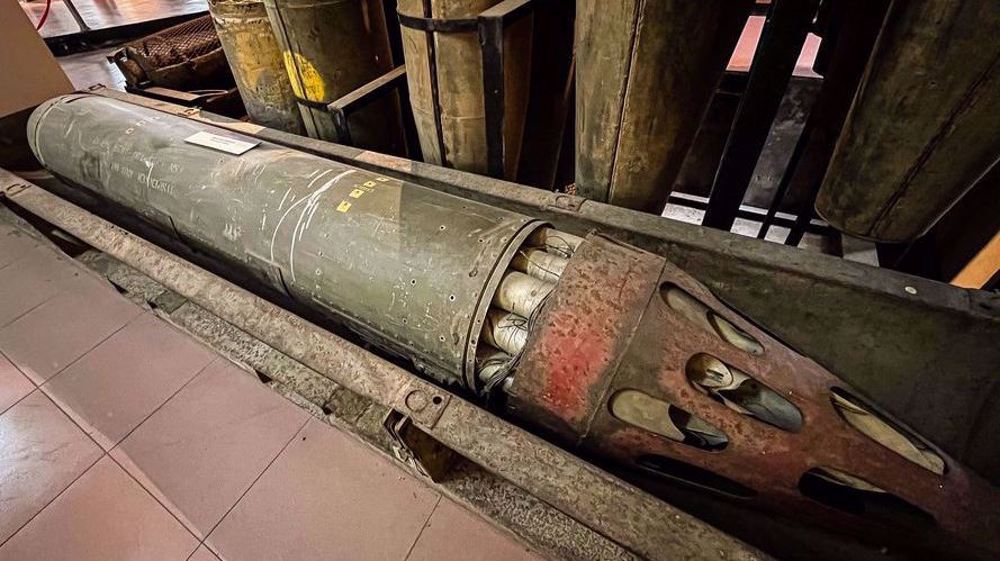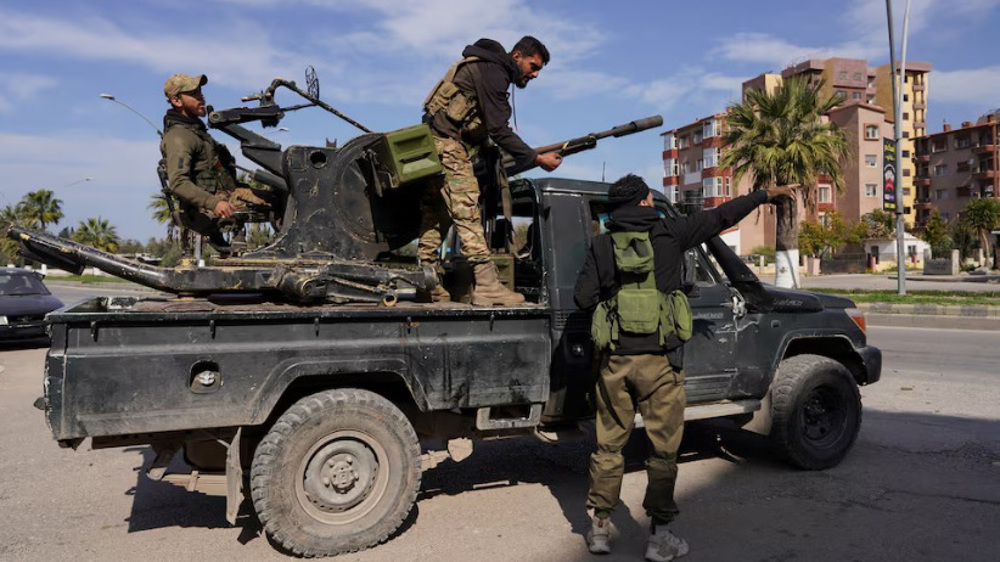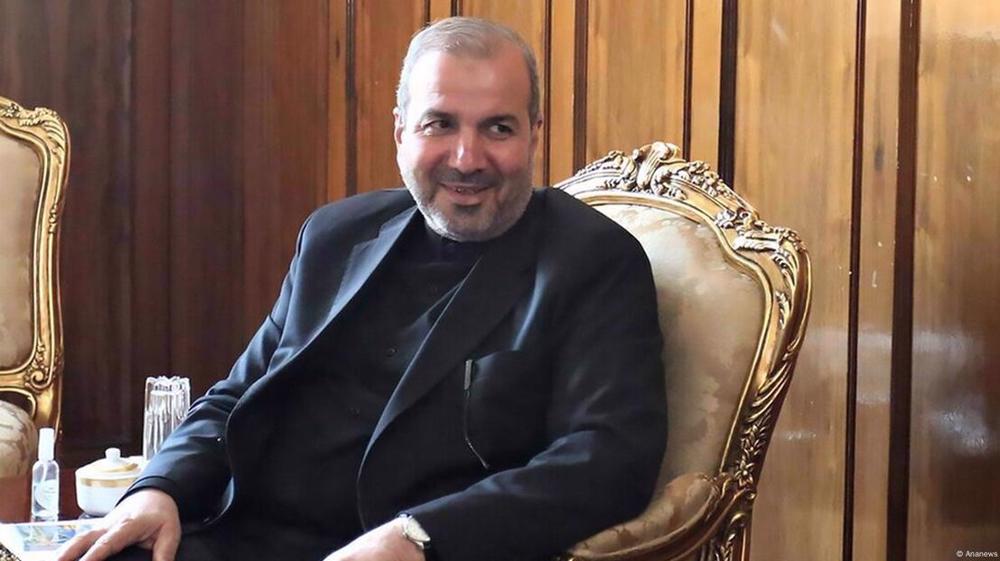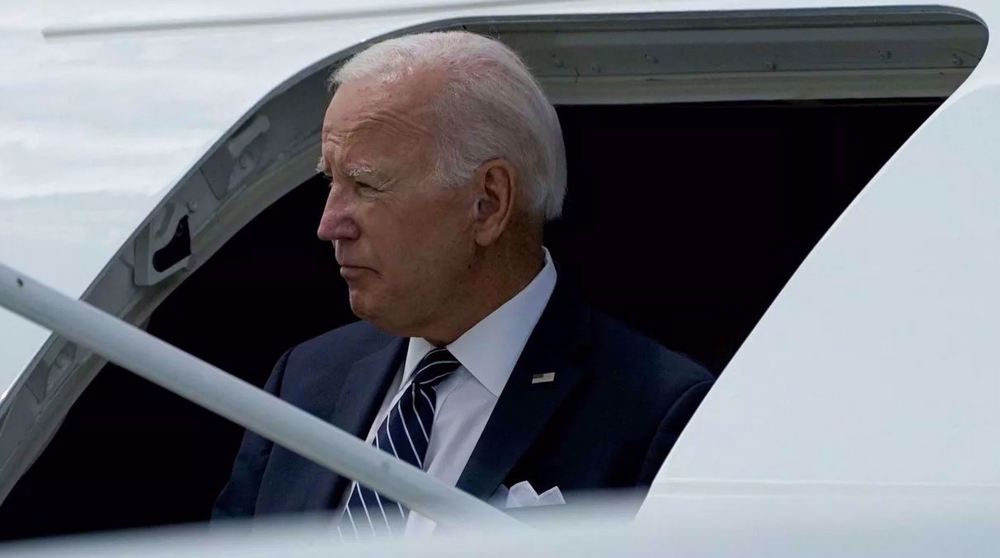Biden arrives in Vietnam in bid to lure China’s neighbor
US President Joe Biden has arrived in the Vietnamese capital on a visit officials say is aimed at deepening ties with the Southeast Asian country, amid US concerns about the growing influence of China and Russia in the region.
Biden, who flew to Hanoi from the G20 summit in New Delhi, disembarked Air Force One around 4:00 pm (0900 GMT) on Sunday.
The Western leader aims to hold talks with the leader of Vietnam’s ruling Communist Party, Nguyen Phu Trong, on Sunday. And, on Monday, Biden will meet President Vo Van Thuong and Prime Minister Pham Minh Chinh.
In Hanoi, Biden will “discuss ways to further deepen cooperation between the United States and Vietnam,” according to the White House. “The leaders will explore opportunities to promote the growth of a technology-focused and innovation-driven Vietnamese economy, expand our people-to-people ties through education exchanges and workforce development programs, combat climate change, and increase peace, prosperity, and stability in the region.”
Biden will also hold talks on semiconductors and critical minerals, and sign off on a “comprehensive strategic partnership” with Vietnamese officials, media reported.
Washington has been pushing for the upgrade of ties for months as it sees the Southeast Asian manufacturing dynamo as a key country in its strategy to secure global supply chains from China-related risks.
Biden’s short visit to Vietnam aims to shore up support against China’s increasing influence in the world.
Upgrading its diplomatic relations with the US is important for Vietnam as Hanoi only has top-level ties with Russia, India, South Korea and China.
Meanwhile, the New York Times reported just ahead of Biden’s visit that Vietnam was secretly arranging to buy arms from Russia in contravention of US sanctions.
The NYT report cited a Vietnamese finance ministry document that laid out plans to finance arms purchases from the Kremlin through a joint oil and gas project in Siberia.
AFP contacted the Vietnamese government for a comment on the matter.
Meanwhile, Jon Finer, the US deputy national security advisor, told reporters on Sunday that Washington acknowledged Vietnam’s decades-long military cooperation with Russia.
However, he noted that there was “increasing discomfort on the part of the Vietnamese with that relationship,” and the United States and allies could help Hanoi “diversify away from those partnerships.”
Vietnam is a key manufacturing hub, which Washington sees as an important partner as it looks to source less from China after Chinese-linked supply chain shocks in recent years rocked the global economy.
The two sides will likely announce new cooperation on semiconductors, Finer said.

Perpetual war
Meanwhile, Beijing last week urged Washington to put aside its old zero-sum Cold War mentality and pursue plans that benefit all of humanity.
“We believe that when dealing with relations with Asian countries, the US should abandon the Cold War mentality of a zero-sum game,” said Mao Ning, spokeswoman of China’s Foreign Ministry.
China called on the US to “abide by basic norms of international relations, not target third parties and not undermine regional peace, stability, development and prosperity.”
US military hegemony is humanity’s “biggest enemy” and prevents countries from exercising their sovereignty, according to an expert.
Jaime Tamayo, a political scientist from the University of Guadalajara, told Xinhua in an interview that this hegemony and the actions resulting from it put humanity at risk by keeping the threat of a new war always latent.
“It is essential to be clear about who the enemy is,” Tamayo stressed, considering that the United States “is a country that lies, deceives and uses supposed arguments of a false humanism to continue maintaining one of the cruelest empires.”
He added, “If we look at the number of displaced people, deaths, crimes, exploitation, even modern slavery that it has caused with all this ... we can see that it is one of or perhaps the cruelest empires that has existed in the history of humanity.”

US embassy in Syria tells Americans to leave, warns of increased risk of attacks

Columbia president quits amid Trump’s crackdown on pro-Palestinian activism

Envoy: Iran's ballistic missile capabilities not negotiable
Iran’s largest titanium plant ready for production: IMIDRO
Iran: US complicit with Israel in spreading regional insecurity
VIDEO | Explainer: What does Iran’s newly-unveiled largest subterranean ‘missile city’ reveal?
VIDEO | Israeli regime deliberately targets paramedics and ambulances in Gaza
Hundreds of thousands rally in Istanbul to call for release of jailed mayor
Israeli forces destroy 3,250 housing units in Jenin camp amid raids
Hind Rajab Foundation files war crimes case in Germany against Israeli tank commander
Iran’s largest gold mine reports slight increase in output







 This makes it easy to access the Press TV website
This makes it easy to access the Press TV website